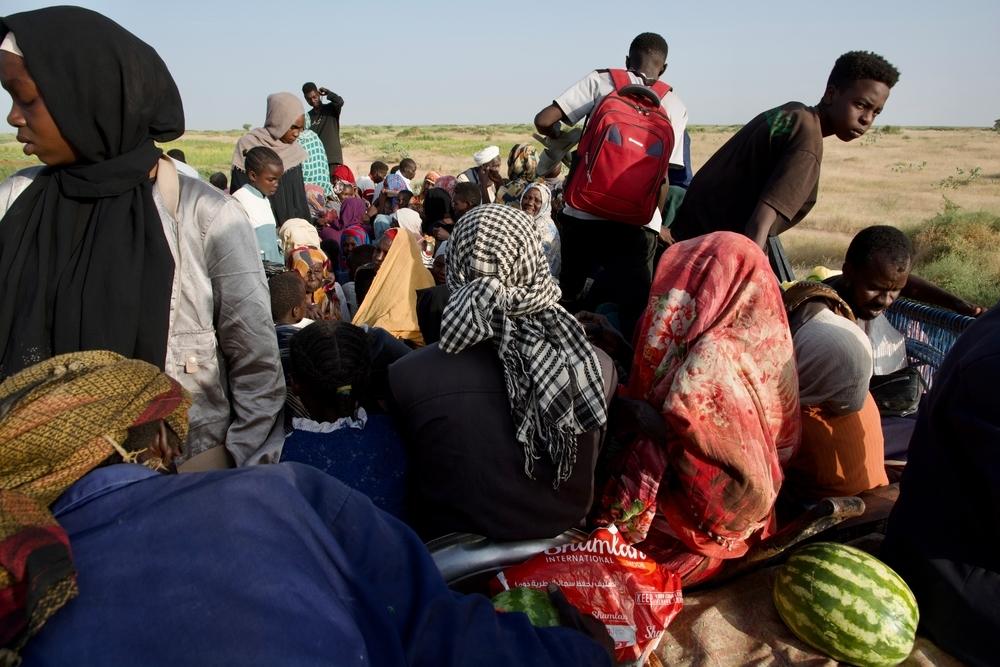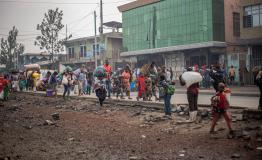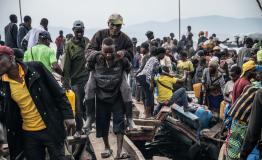DRC/Geneva, 16 August 2024 – On 13 August 2024, the Africa CDC declared the mpox outbreak a Public Health Emergency of Continental Security. Médecins Sans Frontières/Doctors Without Borders (MSF) recognised the Africa CDC’s declaration and were relieved that the World Health Organization (WHO) on 14 August declared the upsurge of mpox in the Democratic Republic of Congo (DRC) and a growing number of African countries a public health emergency of international concern (PHEIC).
MSF strongly supports WHO’s appeal to donors to make the necessary funds available for a comprehensive and coordinated response to the ongoing outbreak covering all components of outbreak response, including surveillance, building laboratory capacity, community sensitization and engagement, and guaranteeing peoples’ access to treatments, vaccines, and diagnostics. Although all components of an outbreak response are needed, access and use of existing vaccines can be dramatically improved with the following concrete actions:
- WHO should accelerate the Emergency Use Listing (EUL) Procedure of the two mpox vaccines already approved by WHO-listed national regulatory authorities. EUL will encourage manufacturers to increase their production of the mpox vaccines and allow Gavi, The Vaccine Alliance and UNICEF to procure these vaccines for distribution
- With Africa CDC Director General Kaseya having estimated that at least 10 million doses of mpox vaccines will be needed to respond to the ongoing epidemic, countries that are in possession of substantial stockpiles of MVA-BN vaccines*, and that are not experiencing any active outbreaks, must donate as many doses as possible for allocation to affected countries in Africa.
- All relevant parties must find a legal arrangement for any compensation that stems from the use of the MVA-BN vaccine in children and adolescents during this outbreak, such as a no-fault compensation fund. The paediatric use of MVA-BN was recommended by the United States CDC during the 2022 mpox outbreak and by the WHO Strategic Advisory Group of Experts on Immunization (SAGE) among children with increased risk of contracting mpox.
- The current price of the MVA-BN vaccine is out of reach for most low- and middle-income countries (LMICs) where mpox is endemic or is currently spreading. Bavarian Nordic must review its pricing policy, and urgently seek a partnership with one of the emerging vaccine manufacturers in Africa for a full and timely tech transfer so a vaccine protecting against a disease that is endemic to Africa can also be produced on the African continent in the future.
Dr Justin B. Eyong, Intersectional Epidemiological Coordinator for MSF in DRC
“The extremely limited availability of mpox vaccines in DRC has already drastically reduced the reach of the national strategic plan for vaccination against mpox. This means that without improved access to vaccines, thousands of people, including children under 15 years old who are particularly affected by mpox (representing 56% and 79% of all cases and deaths from mpox in 2024, respectively), may be left unprotected. With the mpox outbreak in DRC continuing to evolve rapidly, the situation is urgent, and every necessary step must be taken to get mpox vaccines to the adults and children who need them now.”



